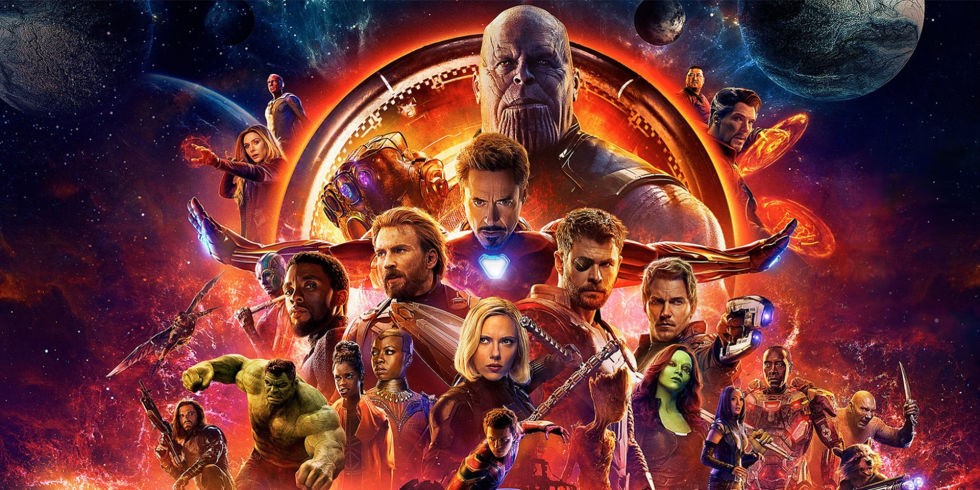
By Andrew Jenck
While I would describe myself as a fan of the Marvel Cinematic Universe as a whole, but particularly, most of their movies from 2016 onward, so I approached Avengers: Infinity War with some reservations. Not only had I grown more invested in the personal, intimate stories of the recent films, but I found their version of Thanos and the infinity stones, the McGuffins of the film, to be uninteresting in their previous appearances. They were always in the background or plot mechanics of the other films while the characters, relationships, and development took the main focus, as it should. So a whole film about the background noise of previous films and having an assembly cast of roughly 20 characters left me uneasy. At the hands of any other studio, this would’ve turned into a convoluted mess of a picture, but this is Marvel Studios we’re talking about — who have managed to surprise all us before. Yes, what you’ve heard about Infinity War is true: a near miracle of a film that manages to put the franchise’s ten-year-long continuity to great use, allowing for a narrative that wouldn’t have worked on its own and that feels as cohesive as it can.
Near-universal praise for the film and the character of Thanos along with his role in the film. One way that the writers work around balancing the large cast is essentially making the antagonist the protagonist. As many other critics have pointed out, we understand his backstory, motivation, and relationships the most out. I thought back to Steppenwolf from Justice League – how that character’s motivation of achieving godhood was unrelatable but Thanos, while unsympathetic, is understandable and believable in his goals because godhood is not his only goal. He believes himself to be the hero of the story, a trope done before but handled so well here, thanks to good pacing and writing. Josh Brolin, and the motion capture, really helps bring the character to life. Just about everything with this character is brilliant.
Marvel is the only studio to understand the benefit of a shared universe using the solo films to flesh out the characters more than in their team-up movies. I know that it is the norm to judge a film on its own first and as part of a franchise second, but after so many installments of any continuity-driven franchise, one needs a basic understanding of the world. Hence, I would recommend watching the first Iron Man, the Captain America trilogy, The Avengers, the Guardians of the Galaxy movies, and Thor: Ragnarok to best follow the story line. While the narrative can’t quite avoid being disjointed as it must deal with three plot points of different sets of the Avengers and Guardians, it does as well as it can, and is still consistently entertaining, which is impressive given the 160 minute run time. The writers know which characters to give a little more fleshing out and provide a stand out moment from each of them. Some may be caricatures of their former selves, but they kind of need to be so that the plot isn’t weighed down.
Action scenes are some of the best to come out the franchise and probably will be the best of the year, as Russo Brothers take full advantage of each character’s abilities. None of the scenes feels like the typical, bloated sequences we so often get, opting for more grounded approach until the climax of the film. One set piece in particular has so many moments that could only come from comic books that it gave me a big geeky smile on my face. It may be the most comic book-like film released, actually as there are so many weird, creative characters and designs that could only come from Jack Kirby and Steve Ditko’s art from the 70s.
Wrapping up, Avengers: Infinity War is a top-shelf super hero film that warrants its own experience, one that people are going to be talking about for the next few years. The genuine emotion, thrilling sense of dread keeps things interesting, and the ending took me by surprise which ends up being sadder than it could’ve been. It’s the textbook example of how being patient and thinking through franchising can result in long run benefit both from a financial and audience perspective. For once, I’m anxiously anticipating the next installment.


